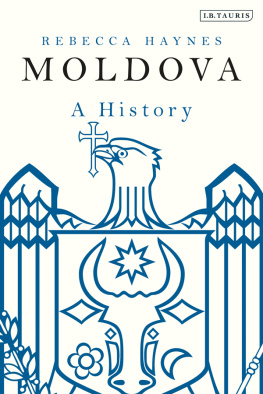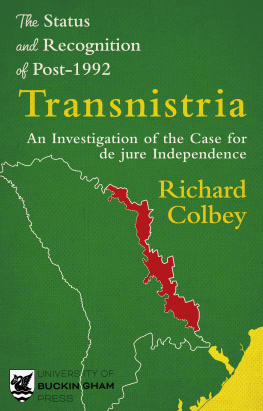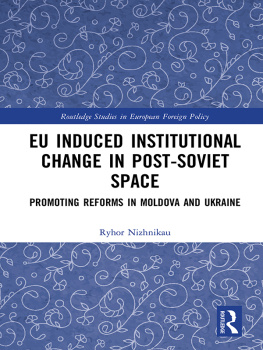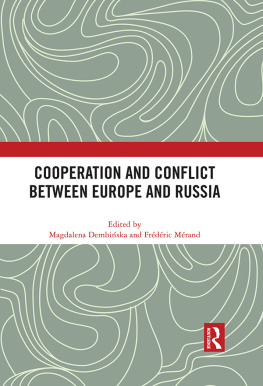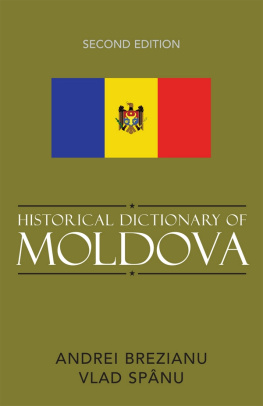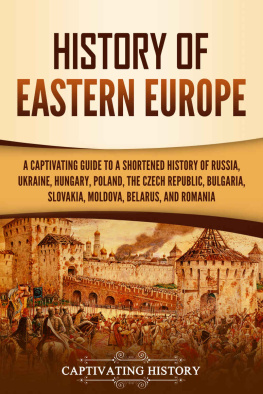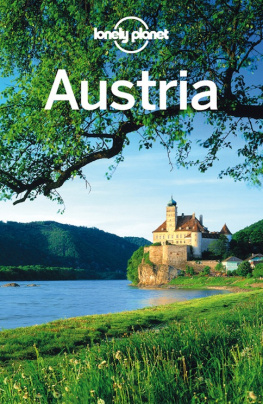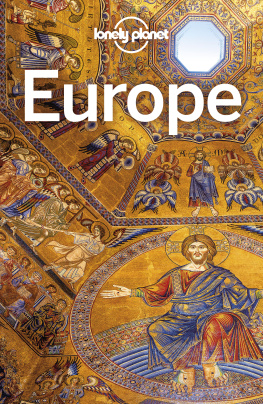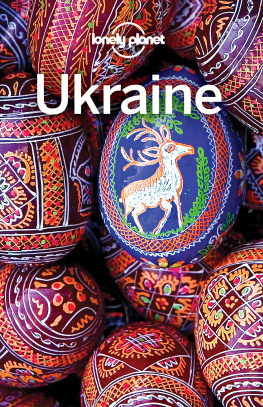About the Contributors
Andrea Ambrus studied international relations at Kodolnyi Jnos College, graduating as an international relations expert in 2011. Currently, she continues her studies in finance. Her thesis topic and main research interests are the Republic of Moldova and International Development Cooperation.
Jos Boonstra is a senior researcher at FRIDE, Madrid. Based in Brussels, he is also head of the Europe-Central Asia Monitoring (EUCAM) program. Before joining FRIDE, he was program manager at the Centre for European Security Studies, the Netherlands. His research focuses on Eurasian and transatlantic security issues (foremost EU, NATO and OSCE policy), as well as security and democratization in Eastern Europe, the South Caucasus and Central Asia.
Georgiy Byanov is deputy director of the South-Ukrainian Frontier Research Centre, Kherson, Ukraine.
Andrey Devyatkov , PhD, is a senior lecturer at the Institute of Human Sciences, Tyumen State University, Russia. He was a visiting fellow at the Institute for International and European Policy, Katholieke Universiteit Leuven, Belgium, and at New Europe College, Romania. His main research interests include Transnistria and Moldova, international relations in the post-Soviet space, and research methodology in international relations.
Vladislav V. Froltsov is an associate professor at Belarusian State University (Department of International Relations, Faculty of International Relations), Minsk, Belarus. He holds a PhD in history. His academic interests focus on topical issues of European and post-Soviet politics, trends in Germanys political development and foreign policy after 1990, and information policy and public diplomacy in modern states. He is the author of over seventy publications.
Ronald J. Hill is a fellow emeritus at Trinity College Dublin, Ireland, where he retired in 2007 as professor of comparative government. Born in the United Kingdom and educated at the Universities of Leeds and Essex, in 1967 he spent the academic year in Chisinau, moving to Dublin in 1969. His widely published work on the politics of the former Communist world includes Soviet Political Elites: The Case of Tiraspol (St. Martins Press, 1977) and Putin and Putinism (Routledge, 2009).
Laura Kirvelyt is a Masters lecturer at the Command and Junior Staff Officer Courses at the General Jonas emaitis Military Academy of Lithuania. Her field of academic research includes political processes in Eastern Europe and the South Caucasus. She is the author of several publications in academic journals and the press, both in Lithuania and abroad.
Vladimir Korobov is professor and head of the Department of Philosophy and Sociology at the Kherson National Technical University, and director of the South-Ukrainian Frontier Research Centre, Kherson, Ukraine.
Marcin Kosienkowski , PhD, is assistant professor at the Institute of Political Science of the John Paul II Catholic University of Lublin, Poland. His research focuses on the post-Soviet area. He has published extensively on Moldova and its breakaway region of Transnistria. Among other works, he is author of The Pridnestrovian Moldavian Republic. Survival Determinants [Polish] (2010).
Juraj Maruiak , PhD, is a senior research fellow at the Institute of Political Science of the Slovak Academy of Sciences in Bratislava, Slovakia. His research is focused on the contemporary history of Slovakia, the foreign policy of Slovakia and international relations in Central and East Europe. He is author of a monograph, Slovak Literature and Power in the second half of 1950s (Brno: Prius, 2001).
Lingqi Meng is a Chinese political scientist residing in Germany. He is currently executive director of the Confucius Institute in Munich. He studied political science at Peking University and at the Ludwig-Maximilians University of Munich. His research interests include theories of international relations as well as the foreign policy of the Peoples Republic of China.
Octavian Milevschi is a PhD candidate in international relations with the National School of Political Science and Public Administration, Bucharest. He recently completed a research fellowship with the New Europe College, Bucharest. His main research interests include Russian foreign and security policy, Black Sea regional studies, unsolved conflicts in the post-Soviet area, and EUs Eastern Neighbourhood Policy.
Florent Parmentier is a lecturer and academic adviser at Sciences Po (Paris, France). He has written two books on Moldova, La Moldavie la croise des chemins (2003), and Moldavie. Les atouts de la francophonie (Cartier, 2010 [Romanian edition 2010]). He has contributed to several books and articles on Moldova, and is co-founder of the web portal www.moldavie.fr. His research interests include the Eastern European partners and energy politics.
Andrs Rcz is senior research fellow at the Hungarian Institute of International Affairs. He also lectures at the Department of International Studies, Pter Pzmny Catholic University. He defended his PhD in modern history in 2008 at the Etvs Lornd University. His research interests cover the post-Soviet region, EU Eastern Neighbourhood Policy, and the foreign and security policy of Hungary.
Andrey Safonov is president of the Association of Independent Political Scientists of Transnistria and editor-in-chief of the Transnistrian opposition newspaper Novaya Gazeta. He also served as a member of the parliament of the Moldavian Soviet Socialist Republic, was founder of the official Transnistrian news agency Olvia-press, and Transnistrian minister of education, science and culture.
William Schreiber is a Millar scholar at the Institute for European, Russian and Eurasian Studies, The George Washington University, Washington, DC. He has written about Central and Eastern Europe for Newsweek International, the Wall Street Journal, and others.
zgehan enyuva is an assistant professor in the Department of International Relations and a researcher at the Center for European Studies, Middle East Technical University, Ankara, Turkey. He holds a PhD from the University of Siena. His work deals mainly with public and elite opinion, and the European Union. His recent publications include Parliamentary elections in Moldova, April and July 2009, Electoral Studies 29, no. 1 (2010): 190-95.
Natalia Shapovalova is a researcher at FRIDE, Madrid. Her research focuses on EU policies toward Eastern Europe, Russia and the Caucasus. Prior to joining FRIDE, she worked for the International Centre for Policy Studies in Kiev, Ukraine. She holds degrees from Maastricht University, the Netherlands; Maria Curie-Sklodowska University, Poland; and the National University of Kyiv-Mohyla Academy, Ukraine.
Nicolai veatcov is a lecturer at the Faculty of International Relations, Political, and Administrative Studies, State University of Moldova, and a senior researcher at the Institute of European Integration and Political Sciences at the Academy of Sciences of Moldova. He holds a PhD in political science. His research contributions to the study of interethnic relations in Moldova are widely recognized.
Dareg A. Zabarah , PhD, studied political science, Slavonic studies, and the history of East and South-Eastern Europe at Ludwig-Maximilians University, Munich. He is an author of two monographs and various articles on language and national identity in Moldova and the Yugoslav successor states. Currently, he is working on a research project on the role of religion as a group boundary marker in Bosnia and Lebanon.
Davide Zaffi holds a degree in political science from Urbino University, Italy, and has held fellowships at the Central European University, the Eurpa Intzet (Budapest), and the Deutsch-Italienisches Geschichtsinstitut (Trento). He has published works on the history of the Habsburg Monarchy and Central Europe in several languages. Currently he is advisor for external relations of the Italian region Trentino-South Tyrol.


